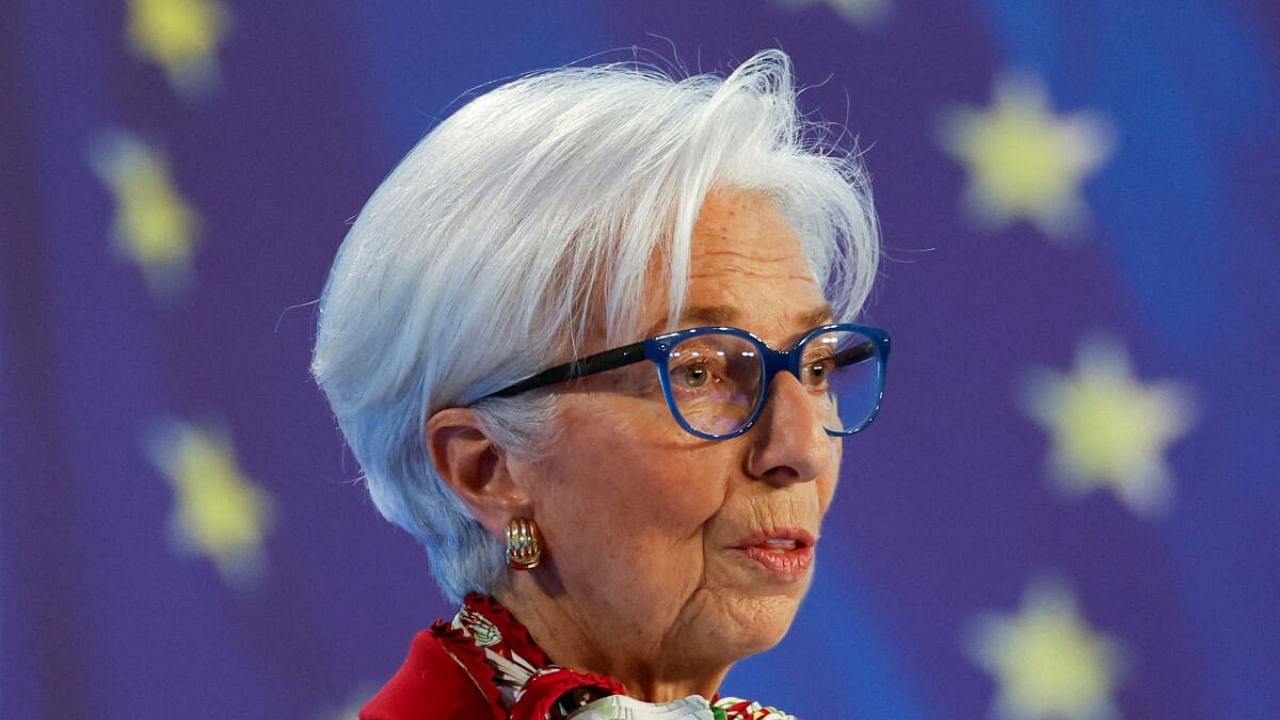
The European Central Bank stuck to a planned interest rate increase Thursday as it remained laser-focused on battling sky-high inflation despite market turmoil over fears of a widening banking crisis.
The bank's half percentage point increase was its sixth in a row and it said there was "more ground to cover", although it signalled a potentially dovish turn, dropping language about the need to raise rates "significantly" going forward.
US and European stock markets wavered at first, with Wall Street opening in the red, but rebounded as investors digested the ECB's statement.
Policymakers had faced calls to slow their aggressive hiking campaign after the collapse of Silicon Valley Bank and Signature Bank in the United States, the sector's biggest failures since the 2008 financial crisis.
Fears of contagion have spread to Europe, with a market rout forcing Credit Suisse to tap a financial lifeline from the Swiss central bank.
After its share price crumbled on Wednesday, Switzerland's second-biggest bank, already battling multiple scandals, sought to stave off the latest crisis by announcing it would borrow up to $54 billion from the country's central bank.
Its shares soared more than 30 per cent at the open Thursday, and European stock markets rose.
The ECB is the first major central bank to meet since the banking turmoil began, with the US Federal Reserve and Bank of England next in line next week.
"We are determined to fight inflation," ECB president Christine Lagarde said at a press conference after the meeting.
Its latest decision leaves the three main rates in the 20-nation currency club 3.5 percentage points higher than July.
The ECB also noted the eurozone's banks were "resilient, with strong capital and liquidity positions", and Lagarde insisted the institution was poised to act if needed.
"We are monitoring current market tensions closely and stand ready to respond as necessary to preserve price stability and financial stability in the euro area," she said.
In the face of calls to slow rate hikes amid the banking turmoil, Lagarde insisted there was "no tradeoff" between price and financial stability.
ING economist Carsten Brzeski noted that "price stability concerns clearly trump any financial stability worries -- at least for the time being".
He predicted, however, that the ECB may "turn more dovish" in the coming weeks, "probably hinting at a slowdown in the pace and size of any further rate hikes".
The bank increased its projection for eurozone GDP growth this year to 1.0 per cent due in part to falling energy prices.
It had previously forecast 0.5 per cent growth for this year.
It also lowered its inflation forecast for this year -- to 5.3 per cent, from 6.3 per cent previously.
All eyes will be on the Fed next week.
There is much debate over whether the US central bank will continue with its rate-tightening campaign as the collapse of SVB has been widely linked to the sharp rise in borrowing costs over the past year.
SVB imploded after taking a $1.8 billion loss on the sale of a portfolio that included bonds whose value dropped due to the rate hikes.
While Credit Suisse has been hit by market volatility, it had already been battling multiple scandals in recent times.
Its problems ranged from the bankruptcy of British financial firm Greensill, in which some $10 billion had been committed, to the implosion of US fund Archegos, which cost it more than $5 billion.
Its annual report this week acknowledged "material weaknesses" in internal controls.
The ECB has hiked rates at a historically fast pace to cool consumer prices after energy and food costs shot up in the wake of Russia's war in Ukraine.
Declining energy prices in recent months have helped slow inflation to 8.5 per cent in February.
Cover inflation, which excludes volatile energy and food prices, remains stubbornly high, however.